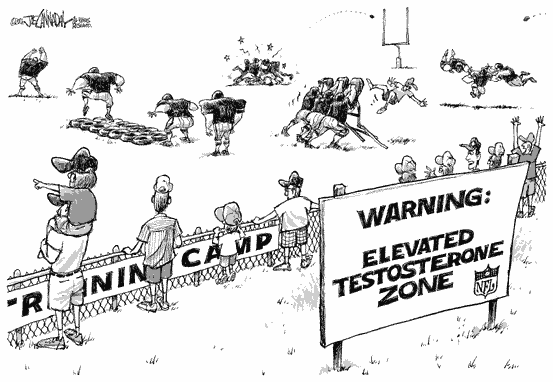It can be tough to bring up a difficult subject like low testosterone with your doctor. While you may be tempted to avoid what can be an embarrassing conversation, remember that it's your health on the line. Having this open and honest talk with your doctor can help you better understand the symptoms you're experiencing and potentially get relief through testosterone therapy. You don't need to accept low T symptoms as a part of normal ageing; there is a treatment option that may help you.
Your doctor will need to know about your symptoms before ordering a blood test to check your hormone levels. If you do have low testosterone for your age, hormone treatment can restore normal levels and help you feel more like yourself.
What Are Your Symptoms?
You may find it helpful to organize your thoughts and list your symptoms on paper at home before you meet with your doctor. Think about how you have been feeling and what you consider a problem. Don't forget to list symptoms that you may associate with just getting older, as they could be a sign that you have an underlying hormone imbalance.
For some men, low testosterone has no symptoms at all. However, you may notice physical symptoms like weight gain, reduced muscle, shrunken testes, and less need to shave. Low testosterone can cause sexual side effects, such as reduced sex drive and difficulty achieving an erection. There may even be symptoms like irritability, depression, trouble concentrating, chronic fatigue, and difficulty sleeping.
Be sure to prepare a list of your symptoms ahead of time to discuss with your doctor.
Important Questions to Ask
Make a list of any questions you want to ask your doctor ahead of time as you may forget during your appointment. Along with any questions you may have that are specific to your situation or medical history, you may want to ask the following:
- Are my symptoms likely caused by low T or could there be another problem?
- Is testosterone therapy risky for me?
- What are the benefits and risks of hormone therapy?
- Are there any lifestyle changes that can improve my symptoms?
- What are the options for testosterone therapy?
- How long will it take for my symptoms to improve?
- How long will I need to take testosterone?
- Are there any options aside from hormone therapy?
If your doctor thinks your symptoms indicate low T, he or she will order a blood test. You will need to take the blood test early in the morning when testosterone levels are at their highest. You may be referred to a hormone specialist if your doctor confirms low testosterone.

Remember that low testosterone is a very common problem that can affect men of any age. The symptoms you are experiencing are not normal ageing and there may be an effective treatment option for you that can help prevent the consequences of low T, including osteoporosis (brittle bones), high cholesterol, weight gain, lost muscle, and sexual side effects.
Don't be afraid to have this important talk with your doctor; take the time to prepare yourself ahead of time with questions and a list of your symptoms so your doctor can get to the bottom of the problem.